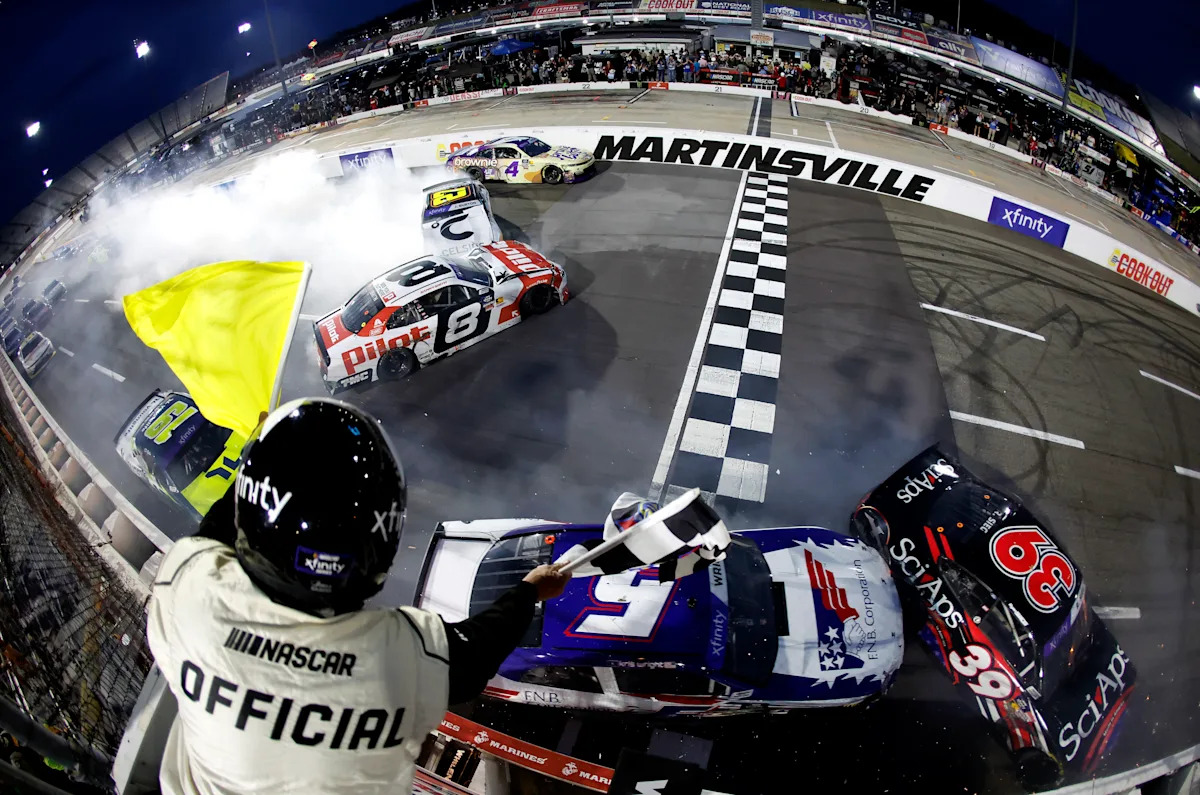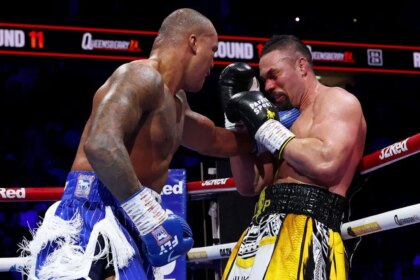Is the 50-point penalty for intentional wrecking in the final lap enough to deter NASCAR drivers?
Xfinity Series driver Sammy Smith was penalized 50 points and fined $25,000 for his actions on the last lap of Saturday’s Martinsville race. Smith, who finished second, deliberately pushed race leader Taylor Gray into turn 3 to try and take the lead.
The move ended badly for both drivers—Gray spun out high in the corner, and Smith also spun, collecting JR Motorsports teammate Justin Allgaier in the process. Austin Hill, who was fifth at turn three, ultimately won the race.
Smith’s aggressive move was the climax of a chaotic race marked by multiple incidents. A 250-lap race, extended by six laps due to a crash delay, saw 14 caution flags, 12 of which were caused by wrecks or spins. After a 54-lap green flag run to start, the longest green-flag stretch was just 20 laps, with only four green-flag runs lasting longer than eight laps.
The race took nearly two and a half hours to complete on a short half-mile track—a slow pace not unnoticed, especially by fans including Cup Series winner and former NASCAR personality Dale Earnhardt Jr., who tweeted before Smith’s final-lap move. Earnhardt Jr. also owns Smith’s car.
Similarly, Friday night’s Truck Series race, a 200-lap event, featured 10 caution flags, eight due to spins or crashes, making it look more like an exhibition than a showcase of driving skill.
Xfinity Series director Eric Peterson told NASCAR’s website, “We want to see hard, door-to-door racing where contact is part of the sport, especially at Martinsville. But after reviewing all the facts, videos, team audio, and data, what Sammy did went beyond acceptable limits.”
These incidents highlight a growing problem in NASCAR’s lower series: the decline of precise, clean racing, particularly among younger drivers who seem less hesitant about making intentional contact. This trend could be because many of these drivers come from smaller budgets, lack experience, or know NASCAR’s current lenient approach to aggressive driving.
Smith’s penalty comes less than a year after Austin Dillon was removed from the Cup Series playoffs for a deliberate last-lap crash on Joey Logano at Richmond. Dillon’s move helped him win the race and secure a playoff spot, but his berth was revoked days later.
The 50-point penalty is meant to set an example across all NASCAR series, but its impact on Smith’s playoff chances seems limited. After seven races, he stands 13th in the Xfinity standings, just four points shy of 10th place, so he’s still likely to make the playoffs either by ranking or winning later.
Would a harsher penalty, like 100 points, be better? That would drop Smith to 22nd in standings, making it harder for him to qualify for playoffs without a race win.
It may be time for NASCAR to consider suspending drivers for points in a single race or imposing even stricter punishments. If penalties like Dillon’s fail to prevent deliberate wrecks, stronger consequences are necessary to keep the sport fair and competitive. Watching these wrecks spoiled the excitement ahead of the Martinsville Cup Series race.
Fan Take: This issue matters because it touches on the integrity and safety of NASCAR racing. If deliberate wrecking is not firmly punished, it could damage the sport’s reputation and alienate fans who want to see real skill, not reckless behavior, on the track.



